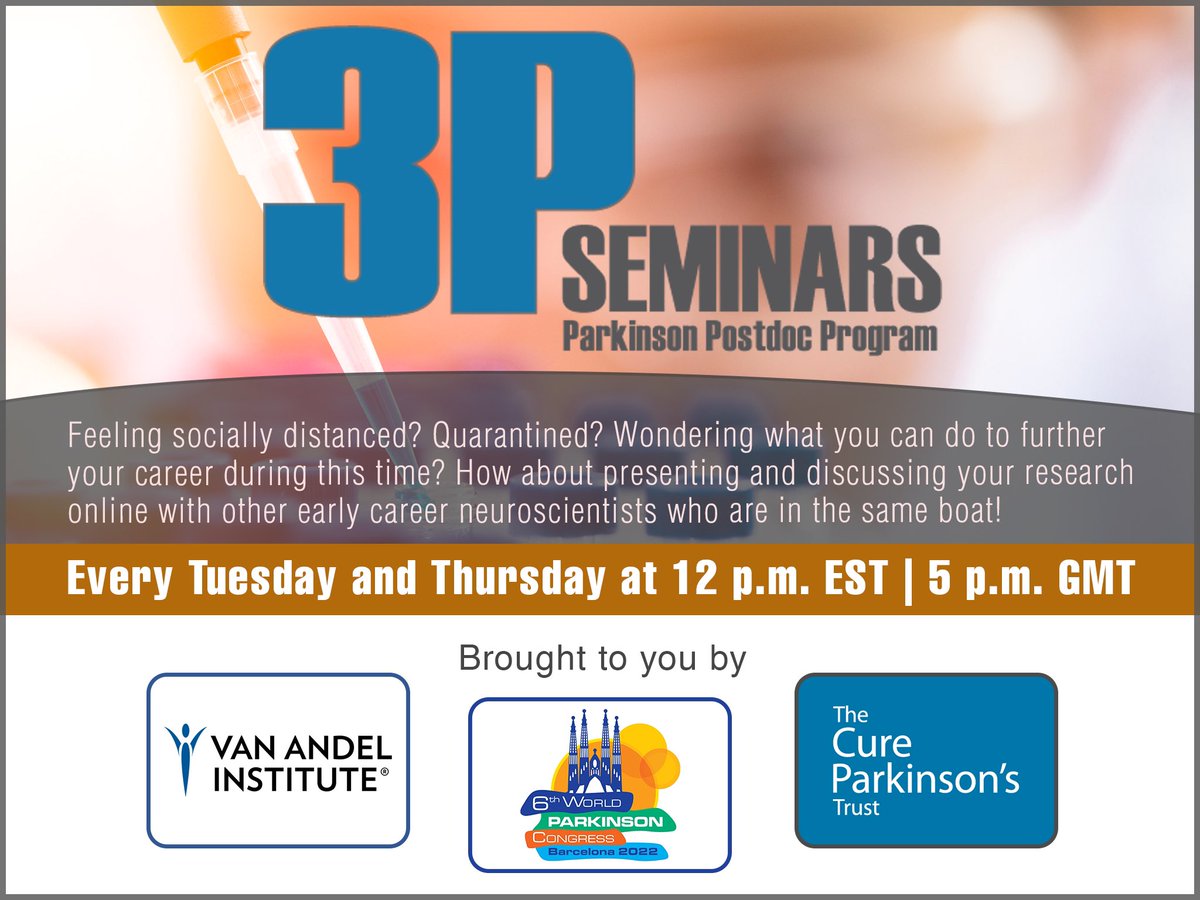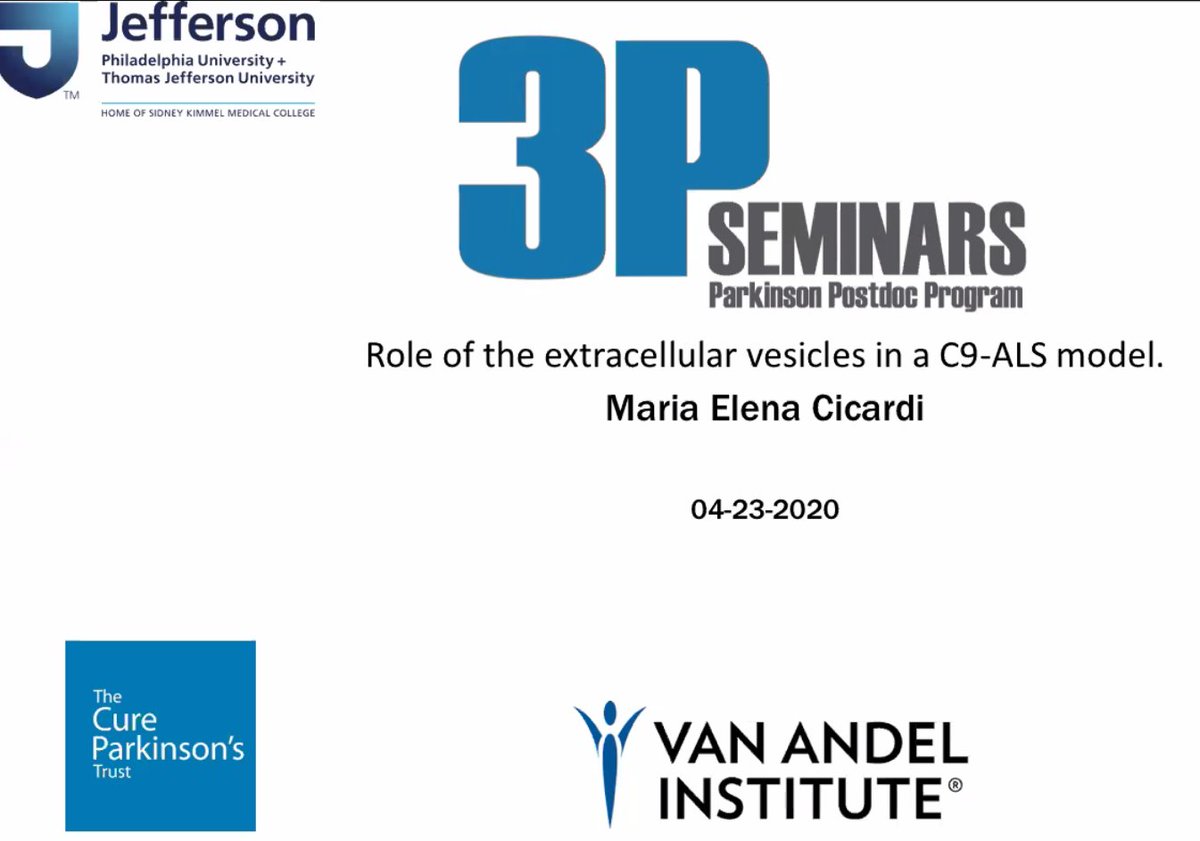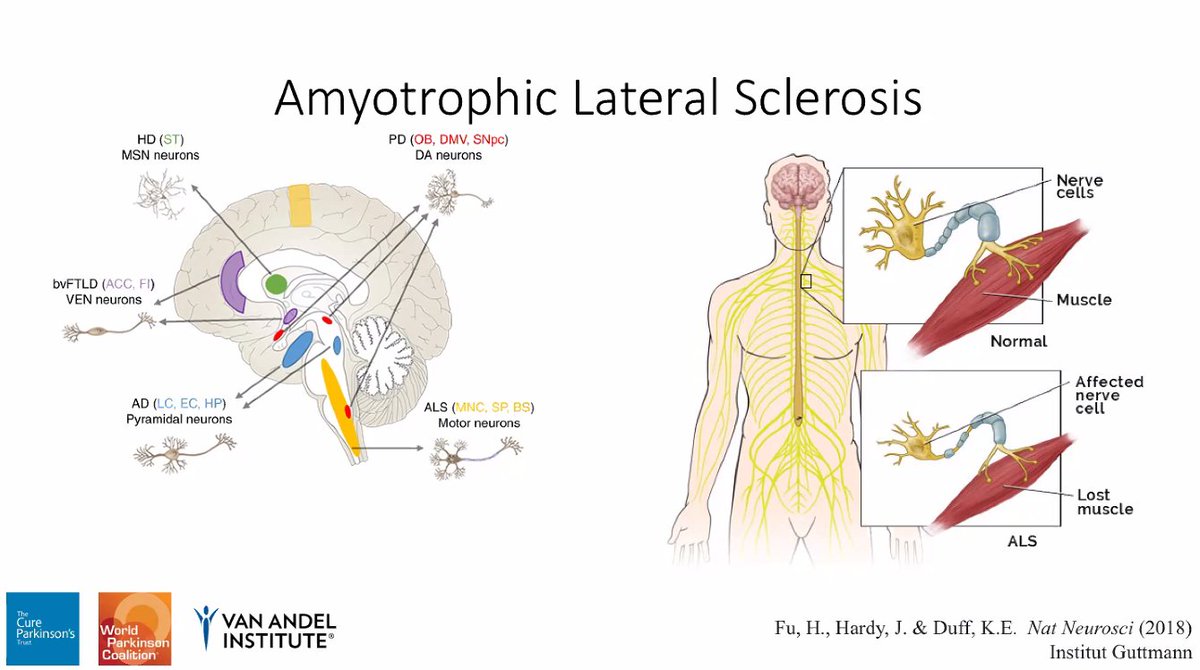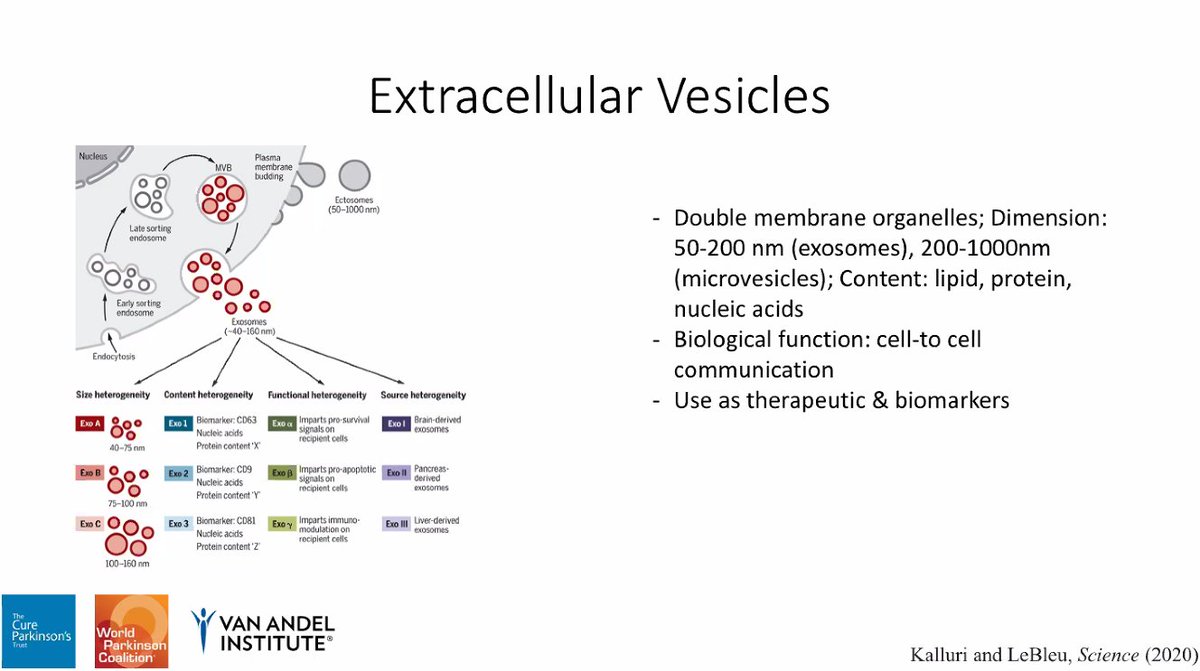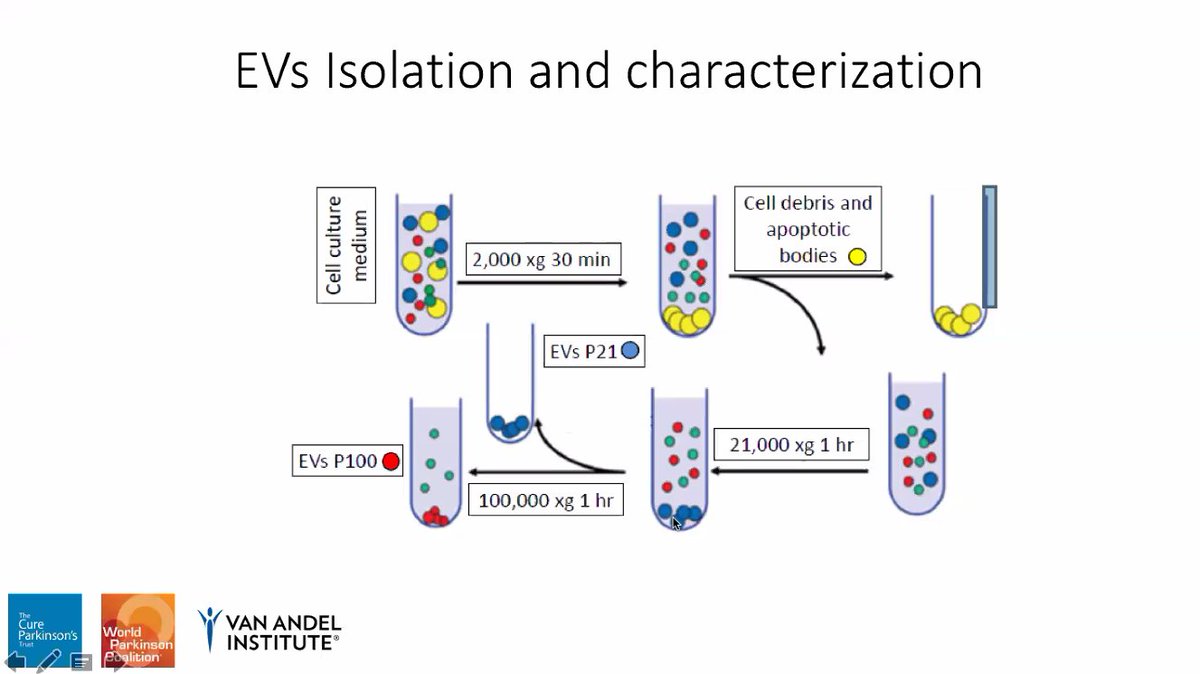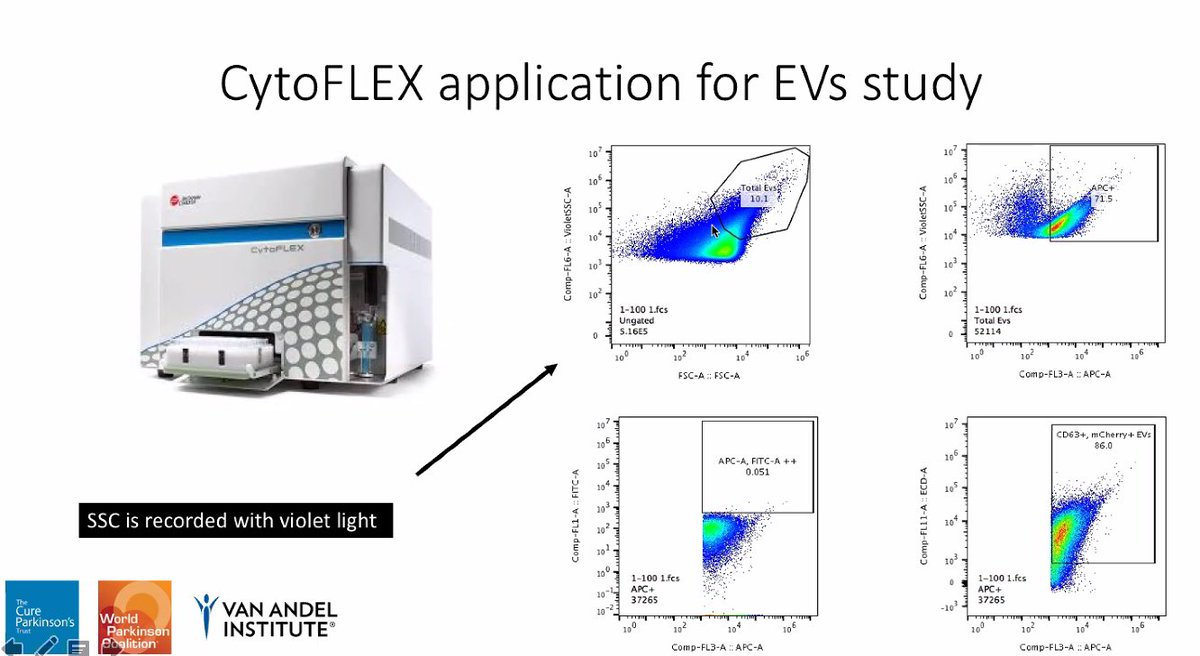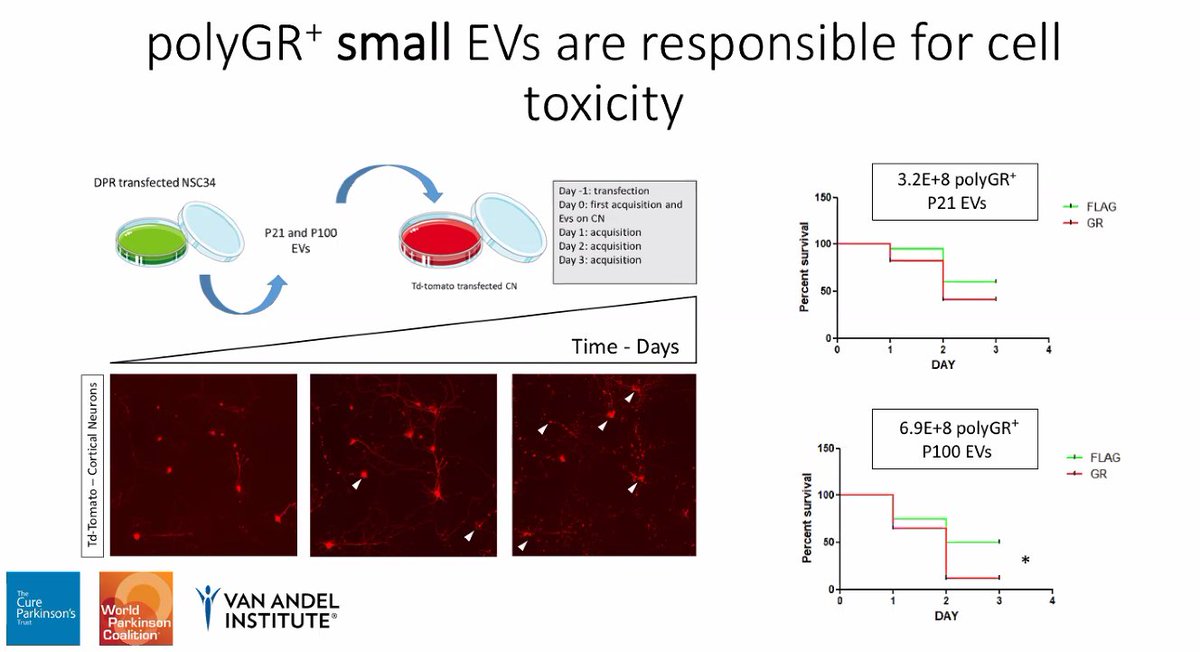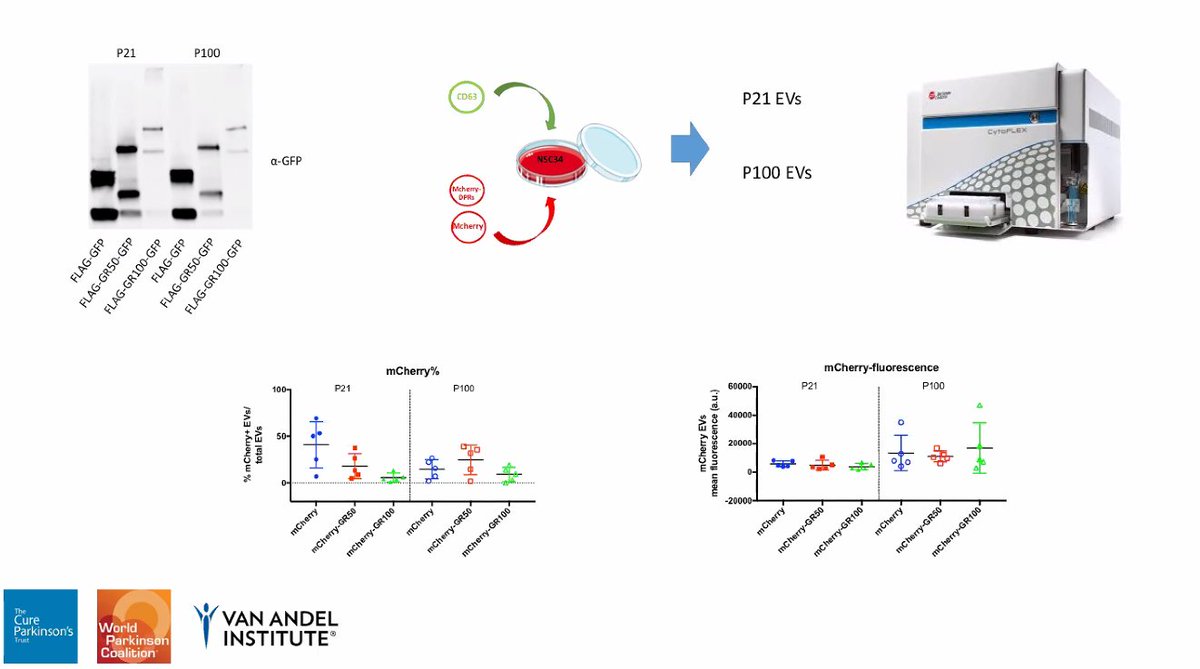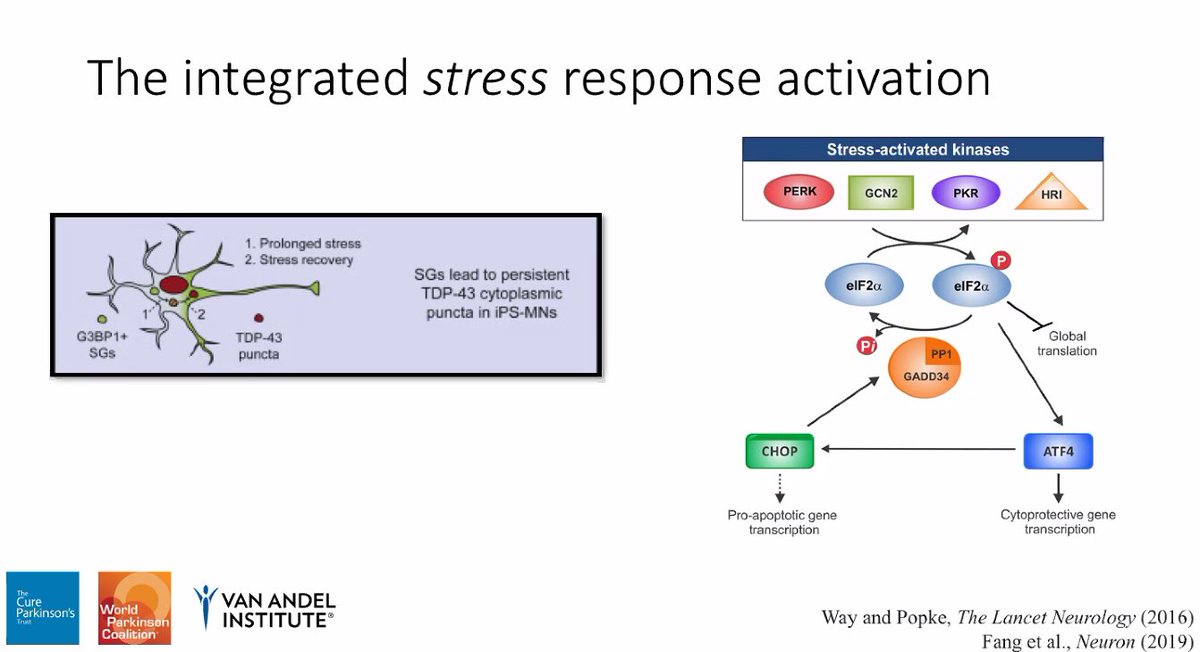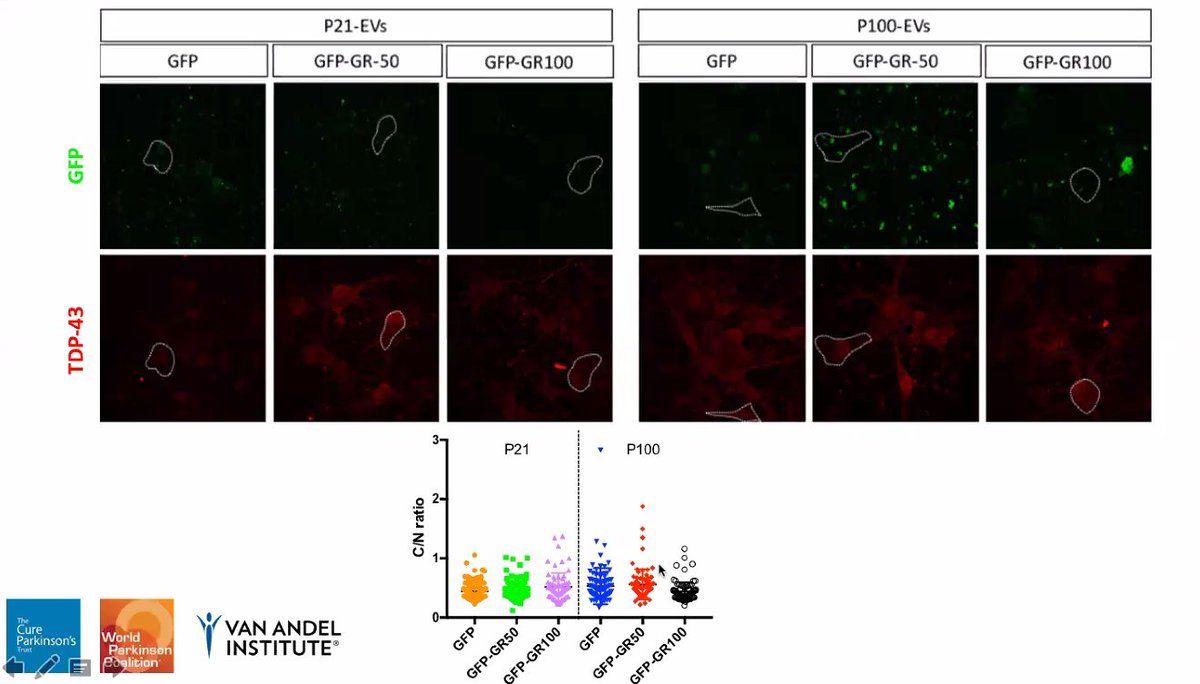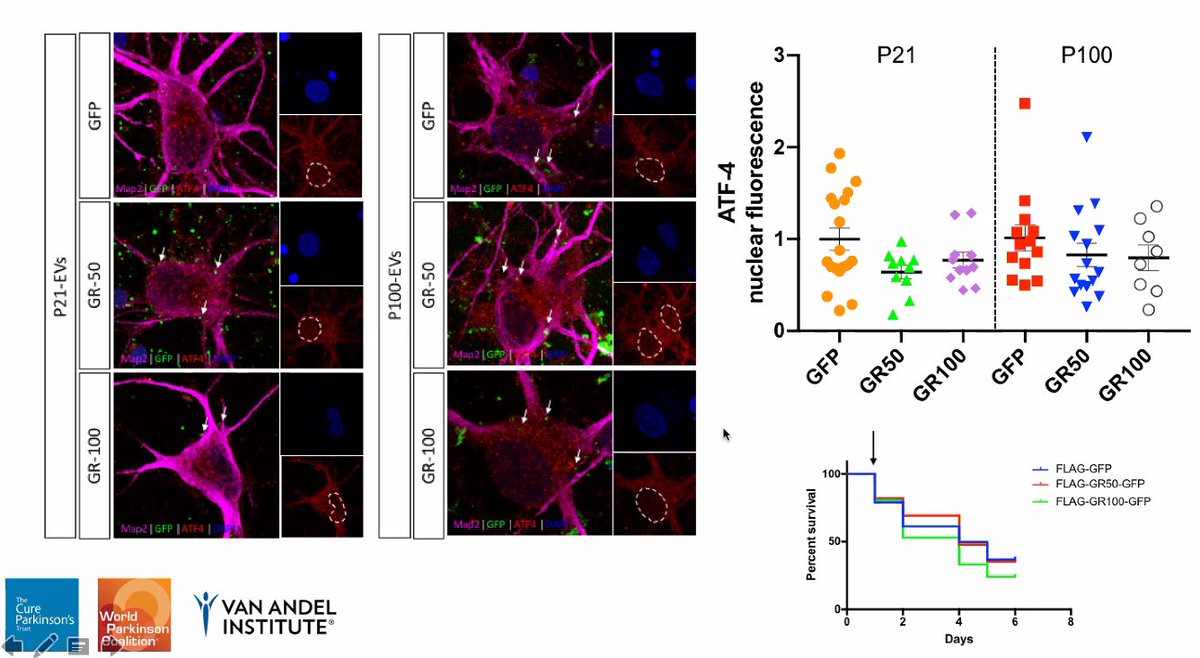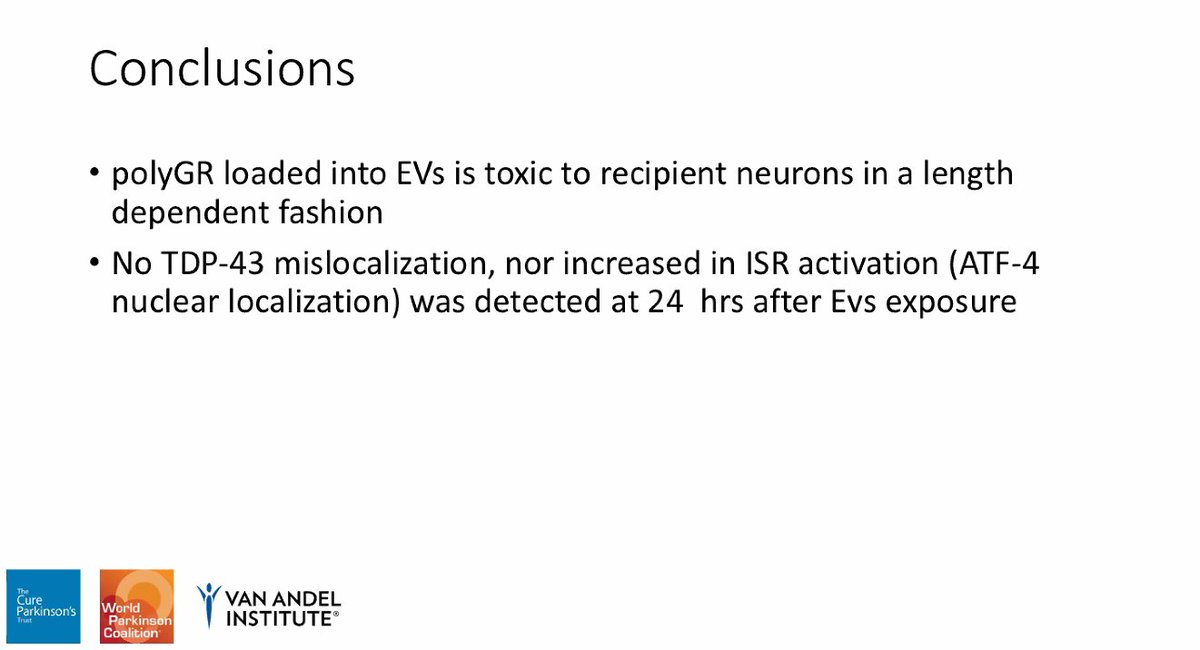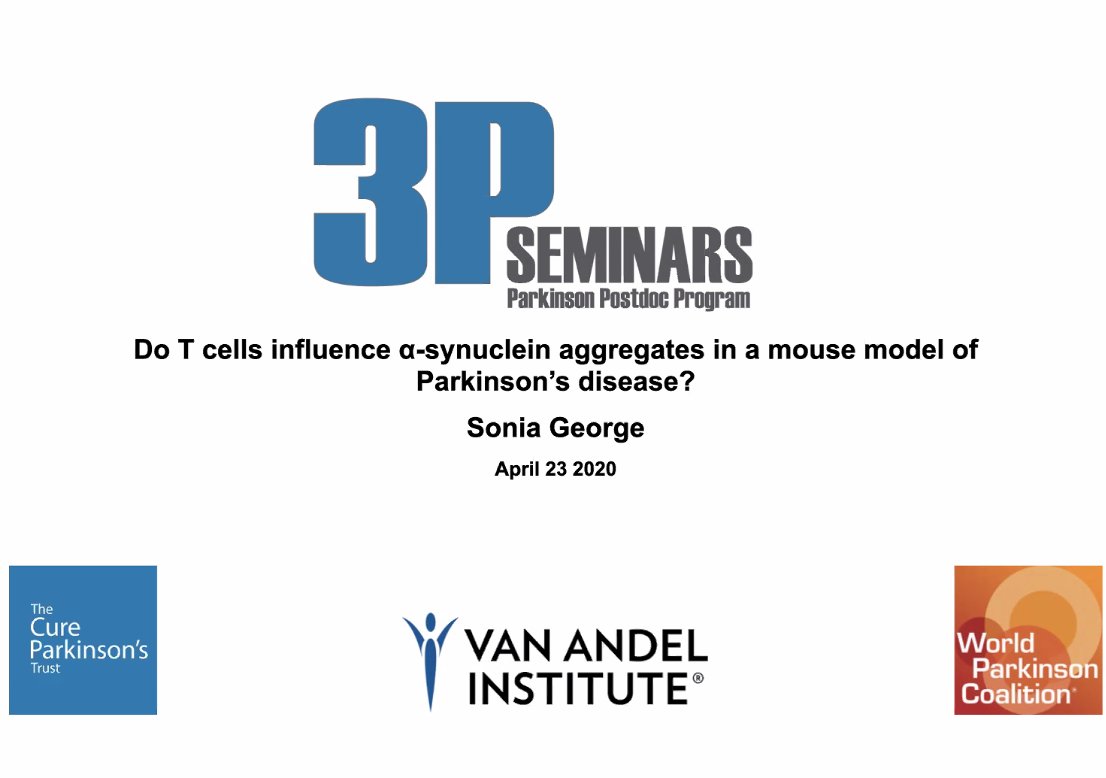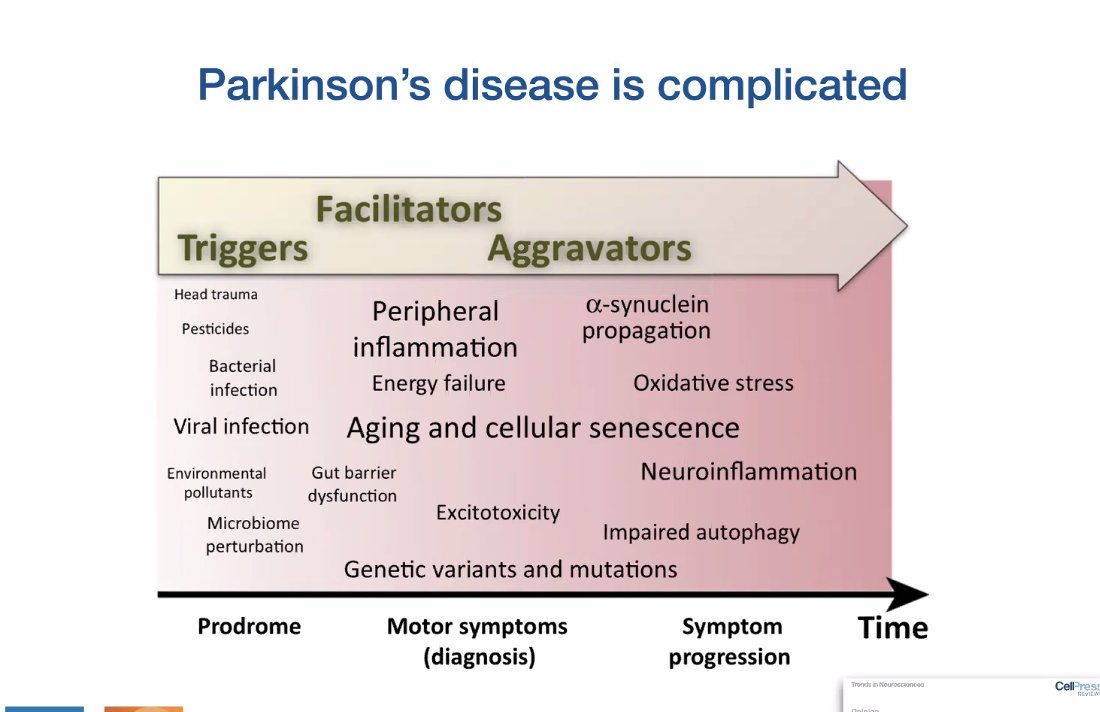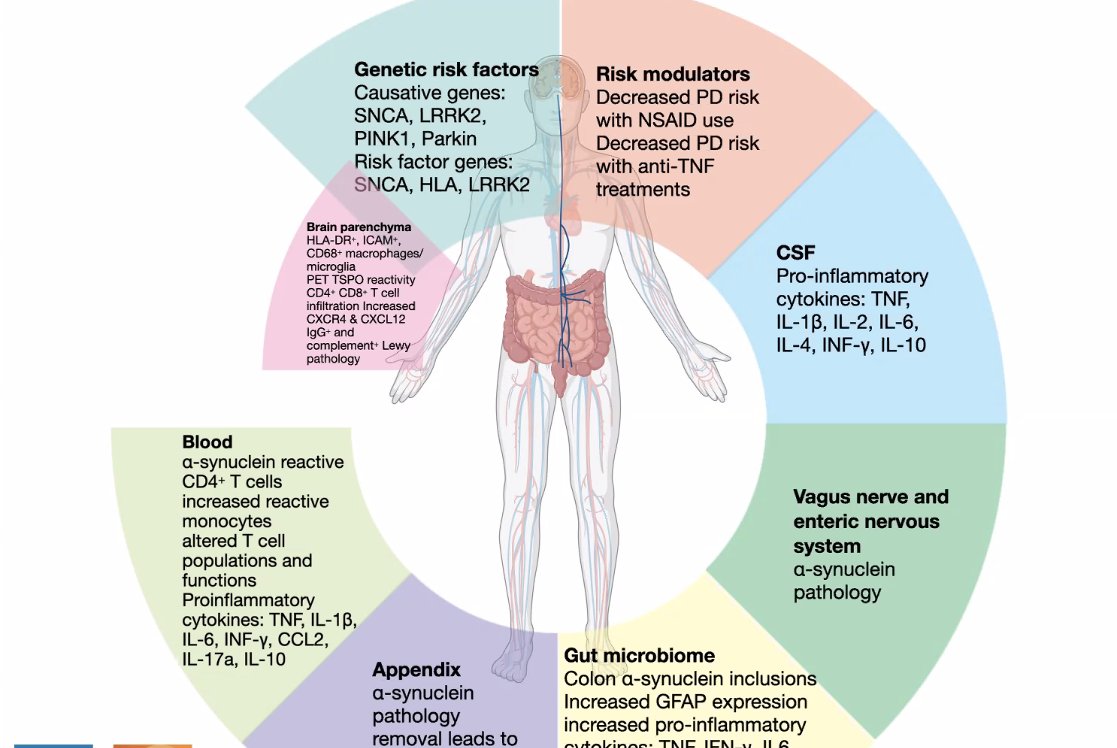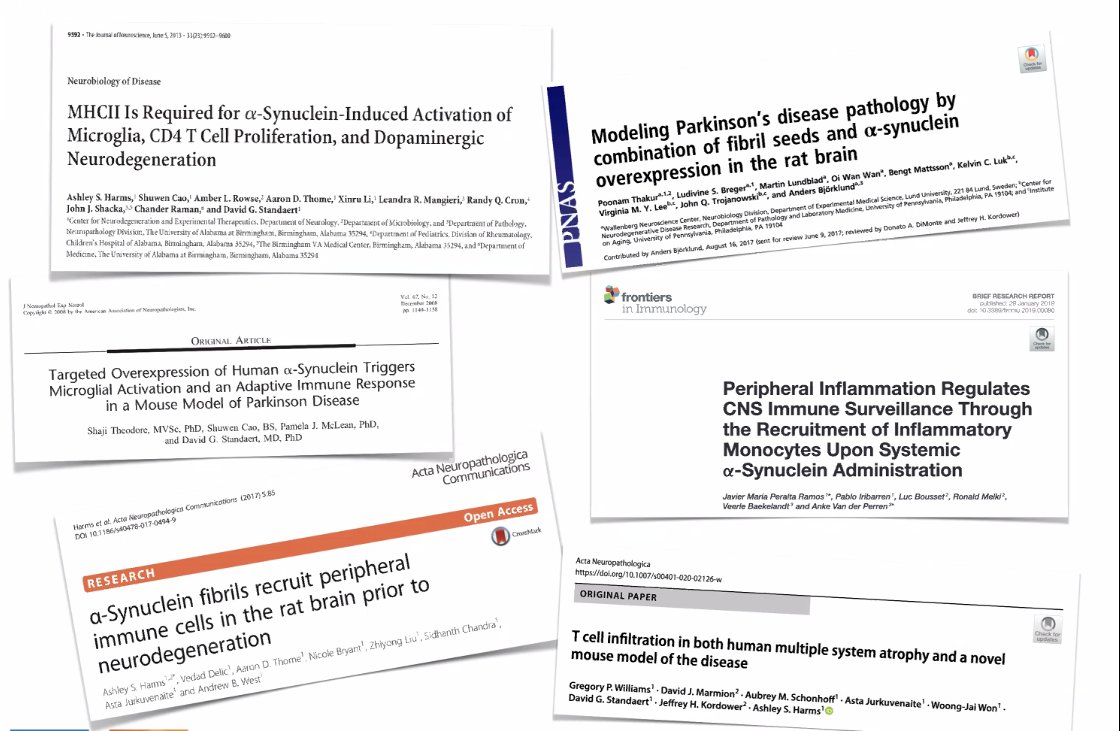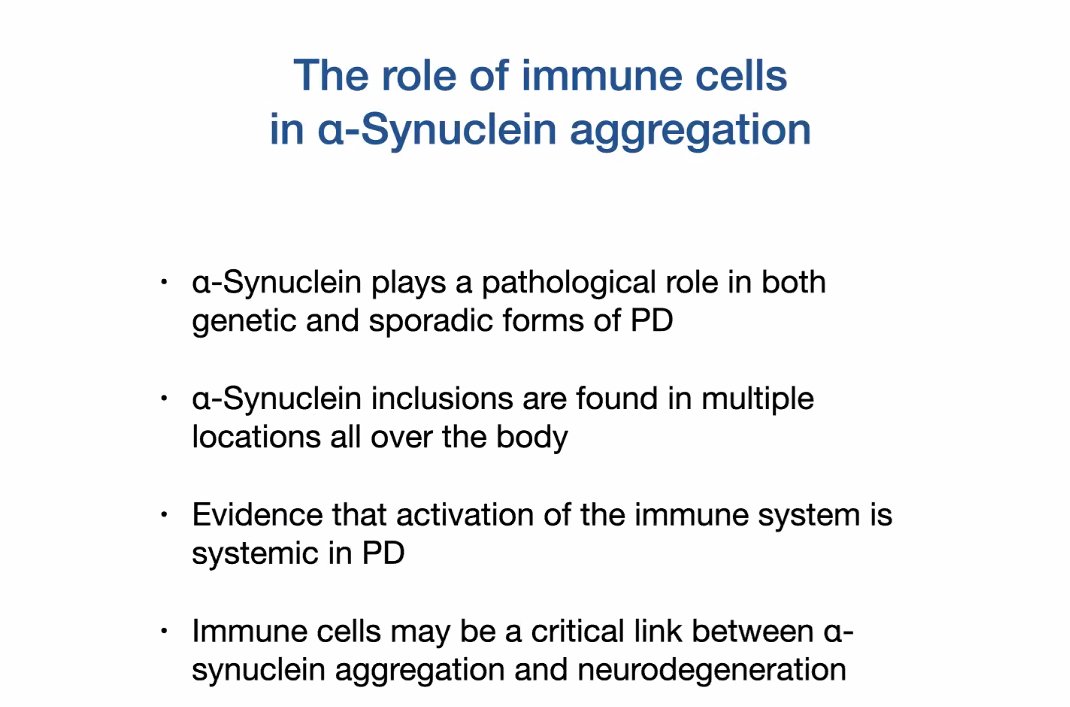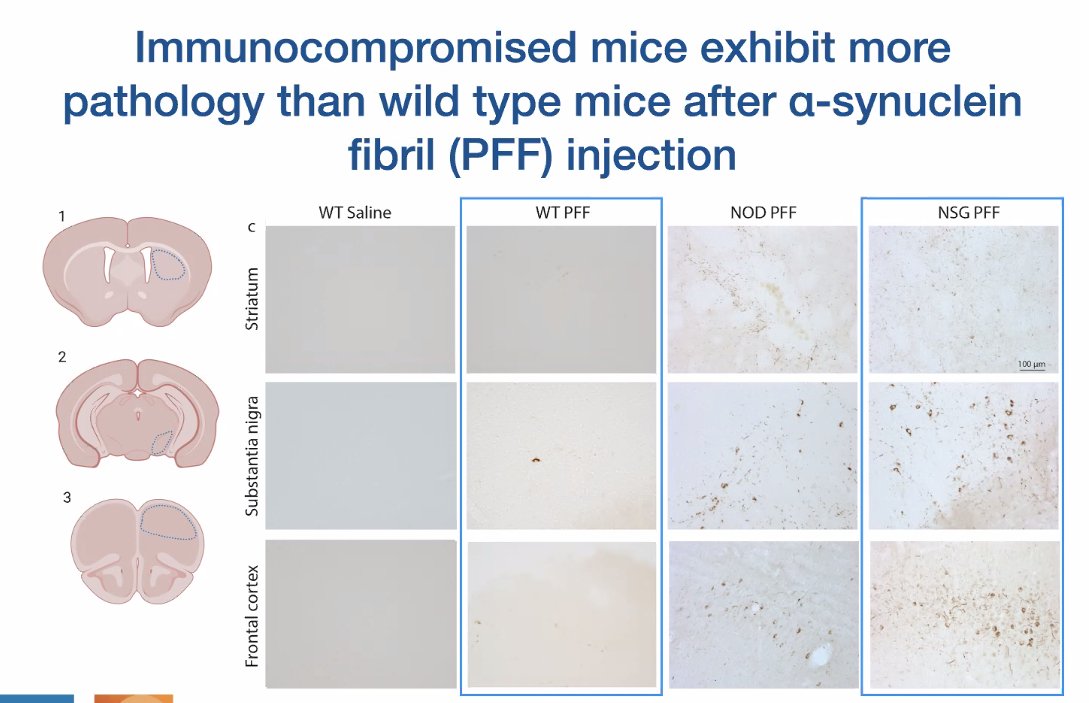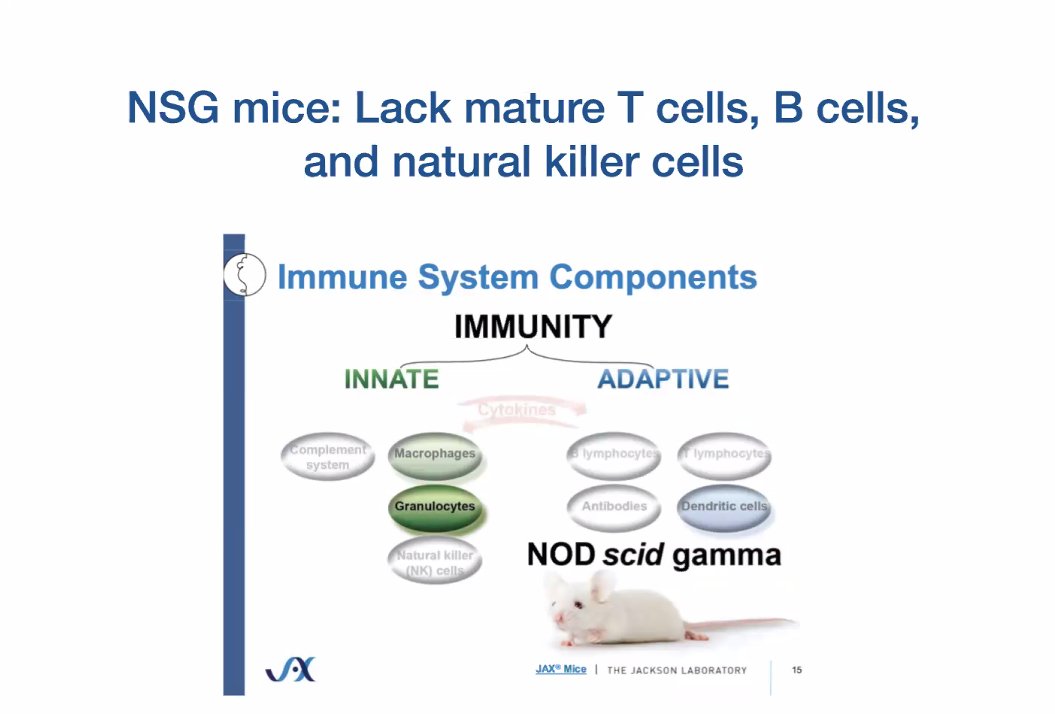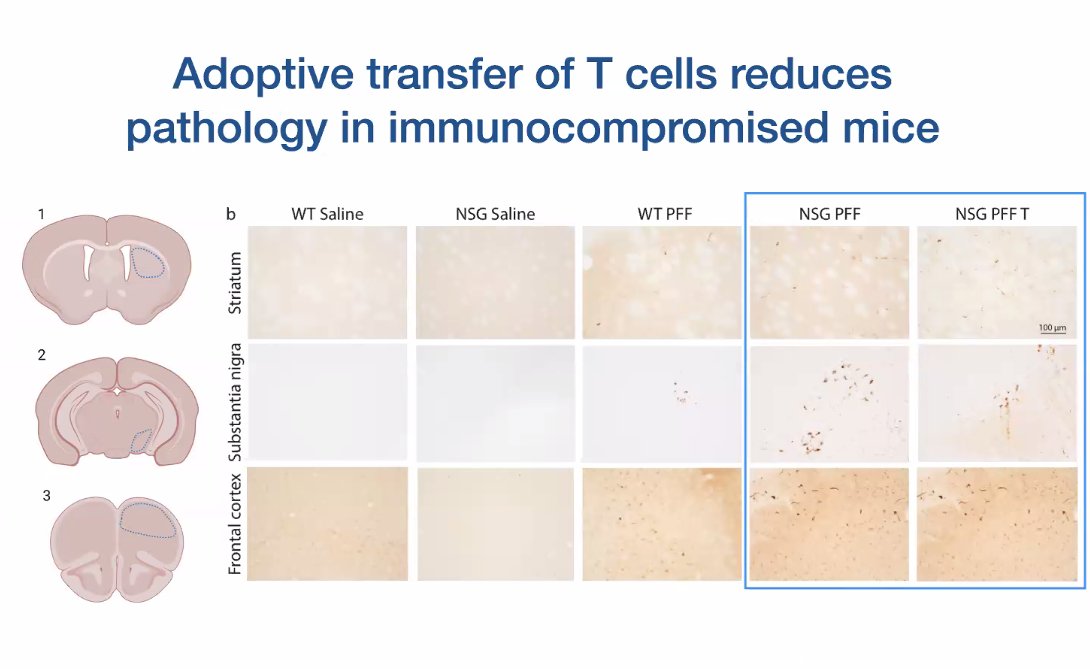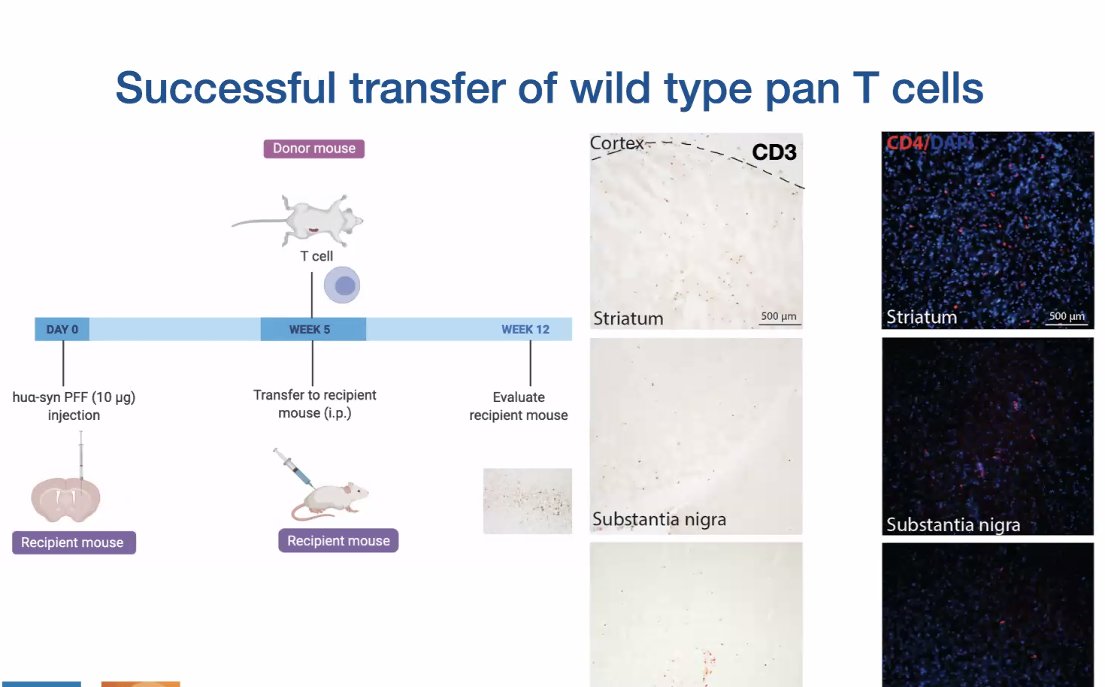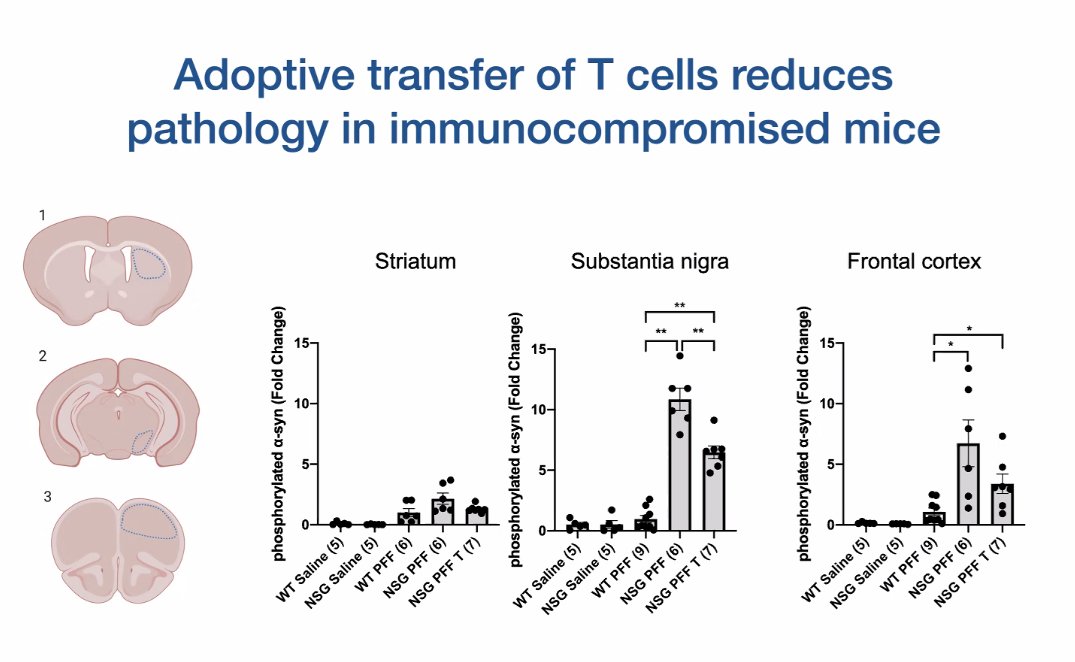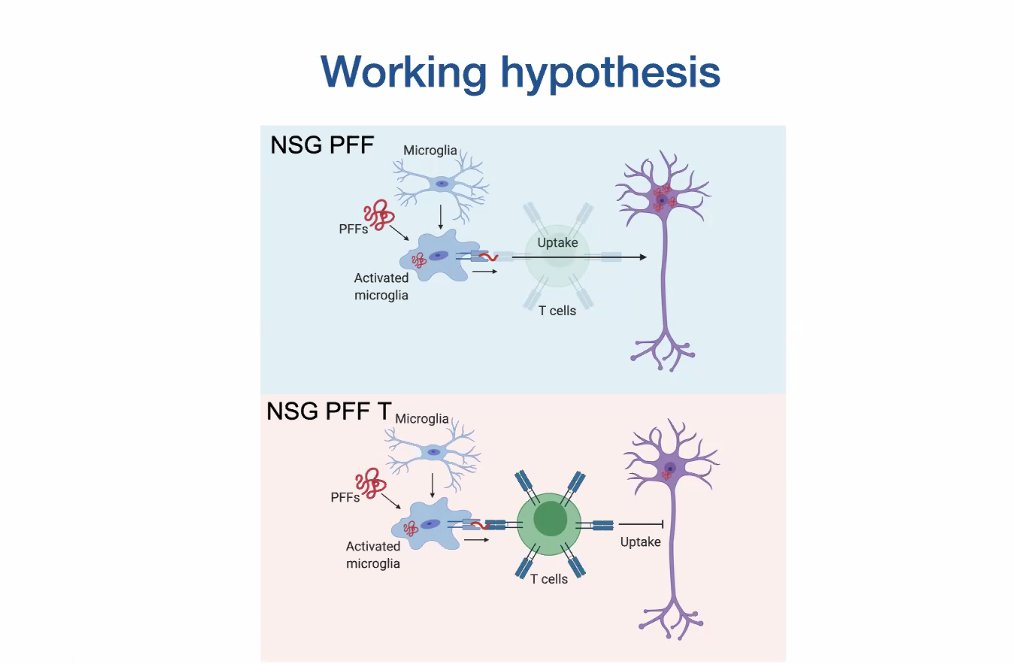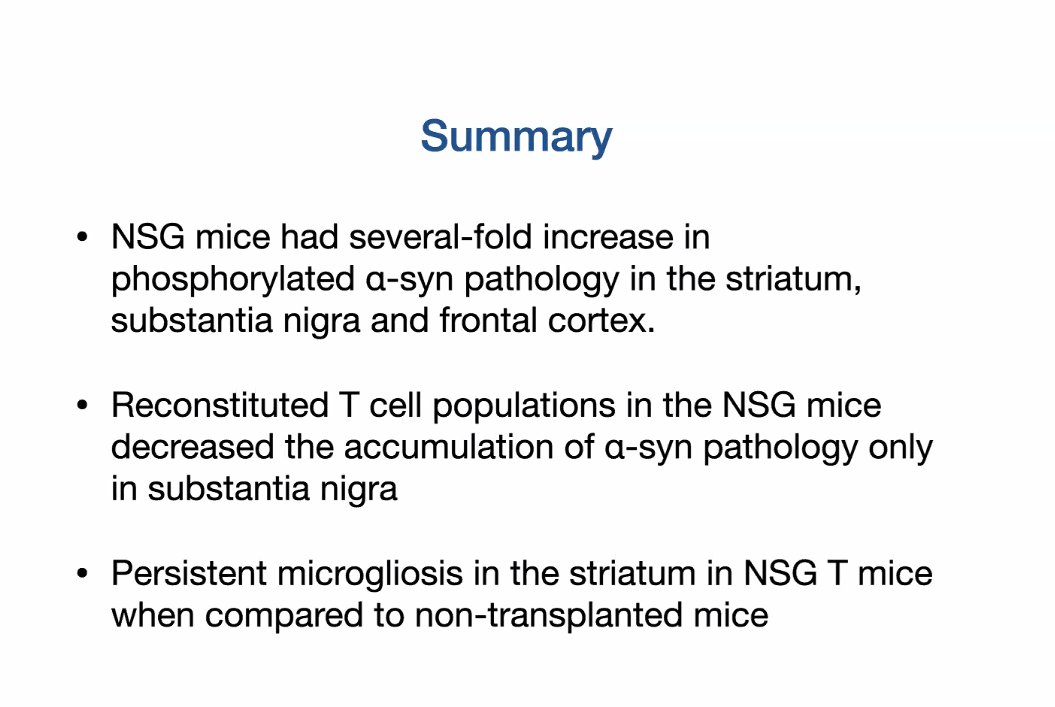The audience is accumulating (but maintaining the sensible social distancing rules) for this week& #39;s Thursday session of @3Pseminars!
Almost time to start :)
Almost time to start :)
This is an online platform providing an opportunity for young scientists focused on #Parkinsons & neurodegeneration to share their research while they are isolated during the #COVID19 pandemic.
The platform is being presented by @VAInstitute @CureParkinsonsT & @WorldPDCongress
The platform is being presented by @VAInstitute @CureParkinsonsT & @WorldPDCongress
And today there are two presenters: Maria Cicardi from @JeffersonUniv & Sonia George @soniageorgephd from @VAInstitute
The first speaker will be Maria Cicardi from @JeffersonUniv & she will be discussing the potential role of extracellular vesicles in ALS in seeding toxicity between neighbor cells and which are aberrant mechanisms that lead to cell death in recipient cells
She has previously published a lot of work on ALS, for example demonstrating that Tdp-25 routing to autophagy & proteasome ameliorates its aggregation in ALS target cells: https://www.nature.com/articles/s41598-018-29658-2">https://www.nature.com/articles/...
And also exploring how the chaperone HSPB8 reduces the accumulation of truncated TDP-43 species in cells & protects against TDP-43-mediated toxicity: https://academic.oup.com/hmg/article/25/18/3908/2525844">https://academic.oup.com/hmg/artic...
Today she will be discussing the potential role of extracellular vesicles in ALS. The GGGGCC expansion in the C9orf72 gene is rare, but one of the most common ALS-associated genetic mutations.
This expansion is aberrantly translated into five dipeptide proteins which are included in the extracellular vesicles and are known to be toxic in neuronal cells. Extracellular vesicles are small organelles released in the cellular milieu by almost any kind of cells.
No TDP-43 mislocalization, nor increased in ISR activation (ATF-4 nuclear localiztion) was detected at 24 hrs after EVs exposure
Lots of questions coming through!
Q: Any spread of DPRs in humans?
A: Still being explored
Q: Is there other cargo in the ALS EVs?
A: Sure, this is also still being explored
Great presentation. ALS is not my area, but this was really interesting!
Q: Any spread of DPRs in humans?
A: Still being explored
Q: Is there other cargo in the ALS EVs?
A: Sure, this is also still being explored
Great presentation. ALS is not my area, but this was really interesting!
The next speaker is Sonia George @soniageorgephd from Patrik Brundin& #39;s @BrundinPatrik at the @VAInstitute ( https://patrikbrundinlab.vai.org/team/ ).
And">https://patrikbrundinlab.vai.org/team/&quo... today she will be discussing T cells & their role in a-synuclein aggregation
And">https://patrikbrundinlab.vai.org/team/&quo... today she will be discussing T cells & their role in a-synuclein aggregation
She has previously published a lot of work in this area, eg demonstrating how microglia affect α-synuclein cell-to-cell transfer in a mouse model of #Parkinsons …https://molecularneurodegeneration.biomedcentral.com/articles/10.1186/s13024-019-0335-3">https://molecularneurodegeneration.biomedcentral.com/articles/...
She has also shown that spread of aggregates after olfactory bulb injection of α-synuclein fibrils is associated with early neuronal loss and is reduced long term https://link.springer.com/article/10.1007%2Fs00401-017-1792-9">https://link.springer.com/article/1...
She is starting off by outlining how complicated the underlying biology of #Parkinsons is believed to be
I am falling behind here trying to keep up (lots of interesting data!), but these results have been shared in a preprint manuscript for those wanting to learn more:
https://www.biorxiv.org/content/10.1101/2020.02.20.956599v2">https://www.biorxiv.org/content/1...
https://www.biorxiv.org/content/10.1101/2020.02.20.956599v2">https://www.biorxiv.org/content/1...
She is summing up now & presenting a working model of what could be going on. Great talk! Really interesting work - shifting to the Q&A now
That @biorxivpreprint link again: https://www.biorxiv.org/content/10.1101/2020.02.20.956599v2">https://www.biorxiv.org/content/1...
Wow! Lots of interesting questions coming through:
Q: So why are nigral neurons so vulnerable?
A: Great Q. We are not really sure
We are going to run out of time for all the Qs. For those interested in following up, check out the FB page to ask more Qs:
https://www.facebook.com/groups/532040884411397/">https://www.facebook.com/groups/53...
Q: So why are nigral neurons so vulnerable?
A: Great Q. We are not really sure
We are going to run out of time for all the Qs. For those interested in following up, check out the FB page to ask more Qs:
https://www.facebook.com/groups/532040884411397/">https://www.facebook.com/groups/53...
Loving this @3Pseminars series!!! Great way to share data & learn more.
Fabulous job by @MichaelaNeuro @LizaBergkvist @CureParkinsonsT @VAInstitute & @WorldPDCongress
And of course @PositivelyParky in the tech background!
Learn more here: https://www.cureparkinsons.org.uk/news/3p-seminars">https://www.cureparkinsons.org.uk/news/3p-s...
Fabulous job by @MichaelaNeuro @LizaBergkvist @CureParkinsonsT @VAInstitute & @WorldPDCongress
And of course @PositivelyParky in the tech background!
Learn more here: https://www.cureparkinsons.org.uk/news/3p-seminars">https://www.cureparkinsons.org.uk/news/3p-s...

 Read on Twitter
Read on Twitter